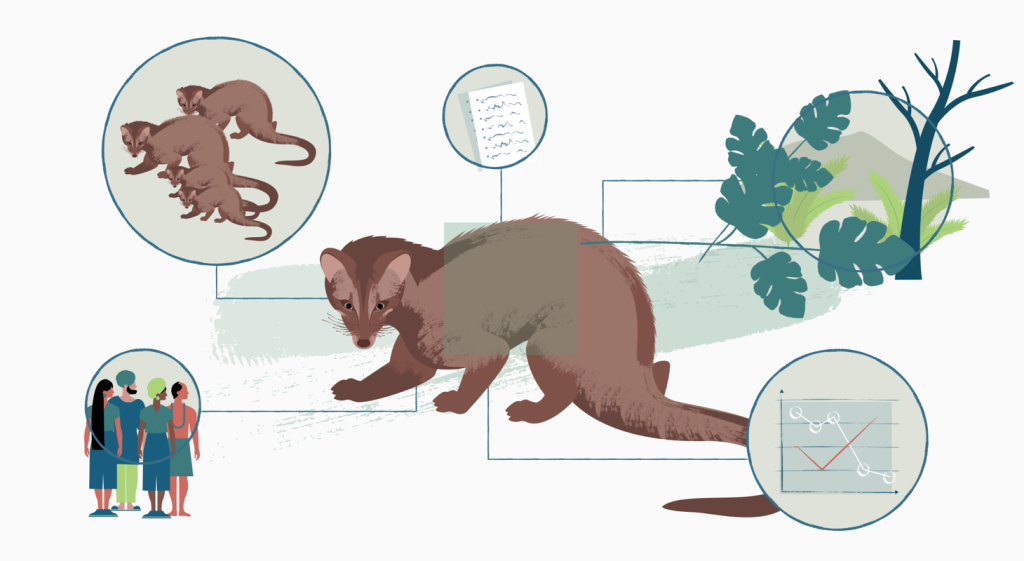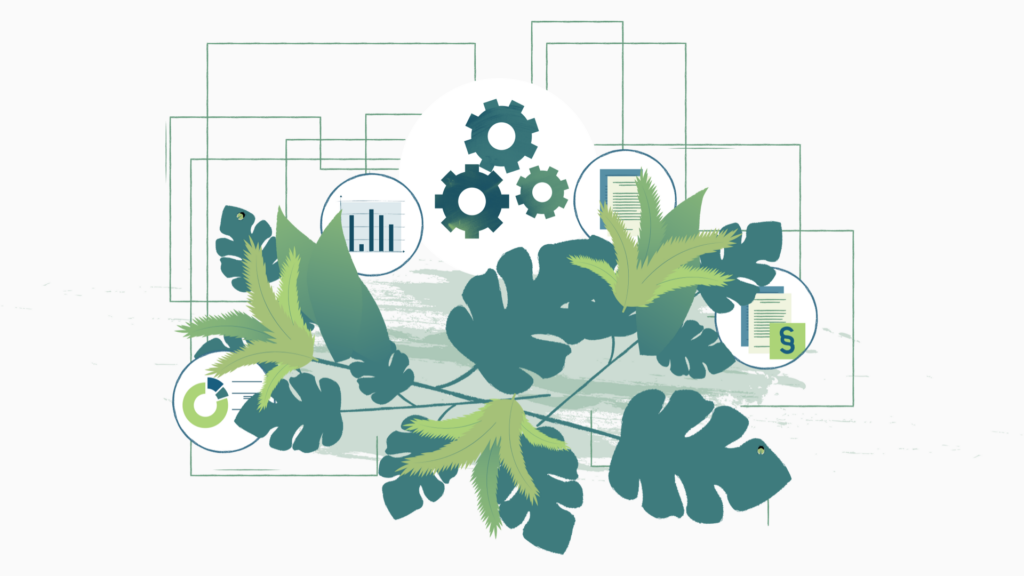Vision
The Members of the International Alliance against Health Risks in Wildlife Trade envision a world of healthy and safe coexistence of people, animals, and the ecosystems that they are part of – underpinned by the recognition of their close links and interdependence.
Mission
The International Alliance against Health Risks in Wildlife Trade is an open, inclusive and collaborative space where stakeholders join forces to better understand and reduce the threat of pathogen spillover from wildlife trade and markets, providing and communicating evidence, supporting interventions, thereby, reducing the risk of future outbreaks, epidemics and pandemics, while concurrently improving health, equity, and well-being for all species – through a One Health approach.

Context
Epidemics and pandemics kill, disrupt lives, and can destabilize entire societies. There is not one simple answer on how to prevent them in the future, and not a single actor, institution or government could achieve this by themselves. The only chance we have is to work together towards this as a common goal.
Simultaneously, we face further global crises, just as deadly and disruptive as pandemics and, furthermore, intertwined: the climate and ecological crises. Solutions must therefore be holistic, cross-cutting, and synergistic, i.e., multi-solving approaches.
Wildlife is an important and integral part of biodiversity, which is one of the foundations of the health of human civilization. It is also a source of known and currently unknown pathogens, some of which have the potential to become pandemic in humans. However, it is not wildlife itself that poses a risk, but the interface between wildlife and people and human behaviour. Indeed, human behaviour offers many critical control points at which we can influence the chances of pathogen spillover from wildlife while protecting it for future generations.
The Alliance
The members of the Alliance form an international, interdisciplinary, and inclusive multi-stakeholder platform for knowledge exchange, an incubator for innovation and co-creation, uniting various disciplines across the One Health spectrum, providing a neutral space to find solutions to complex and pressing issues.
With its multi-solving approach, the Alliance offers a venue for communication and matchmaking to facilitate dialogue, transfer knowledge, integrate expertise, pool evidence, raise awareness, support pilots, disseminate lessons learned and improve regulation. It will catalyze joint action of stakeholders from various fields including, but not limited to, biological, biomedical, and health sciences, ecology, human and veterinary medicine, as well as development cooperation, psychology, and social sciences, in addition to diverse forms of knowledge. Moreover, the Alliance supports translating science and knowledge into recommendations for improved regulation while pointing out knowledge gaps. It strives to integrate traditional forms of knowledge and science-based approaches to reach evidence-based, inclusive recommendations and seeks to progress joint/individual actions around them.
Goals of the Alliance
In the Alliance, (including, but not limited to) national decision makers, international political and civil society organisations, including Indigenous peoples organisations and networks, research institutions and university networks pool their knowledge and utilize their diverse perspectives to openly discuss them and ultimately contribute to the Alliance’s goals. They contribute to knowledge and awareness on contemporary risks of zoonotic spillover, novel pathogen emergence, zoonosis and emerging infectious diseases from wildlife, in use or trade, as well as the interface with livestock encouraging and supporting proportionate action and policies to mitigate risk to human and animal health from this sector.
The specific goals are:
- “Substantially reducing the risks of zoonotic spillover and stepping up responses (including behavioral changes) to human and animal health risks caused by direct and indirect contact with wildlife and their products along the wildlife trade chain.”
and - “Enhancing international and national awareness, knowledge, and policies with regard to goal 1, thus narrowing the gap between science and implementation.

Principles of the Alliance and Membership
The members of the Alliance, even with differing objectives of their own, are committed to the common mission and vision, and goals of the Alliance and embrace it as a unifying platform and safe, inclusive space for discussion and knowledge generation. They engage openly in accordance with the Alliance’s principles of knowledge sharing, collaboration, evidence-based practices, inclusion, and respect.
Where the evidence base on specific health risks is currently weak the Alliance will strive to close knowledge gaps. Wherever potential health risks are acknowledged, even if not proven, the precautionary principle is applied, and the Alliance will work towards behaviour change, reducing both demand for and trade in wildlife specimen and wildlife products. In those instances where this kind of contact with and consumption of wildlife cannot or should not be prevented the Alliance will help identify ways to limit any negative impact on human health, biodiversity, and sustainable coexistence, by fostering exchange, gathering evidence and enabling recommendations.
The Alliance will foster an inclusive approach respecting cultural identity, indigenous peoples’ rights, diverse forms of knowledge and practices, including traditional and indigenous knowledge systems, and strengthening the understanding and acknowledgment that human behaviour, not wildlife, poses risks to human health.
One Health and intergovernmental level
The Alliance is firmly set in the framework of the UN Sustainable Development Goals, the post-2020 Global Biodiversity Framework, and the One Health definition and understanding embraced by the Tripartite+, whose organisations it collaborates closely with (WHO, OIE, FAO & UNEP), as authored by its advisory body, the One Health High Level Expert Panel:
“One Health is an integrated, unifying approach that aims to achieve optimal and sustainable health outcomes for people, animals, and ecosystems. It recognizes that the health of humans, domestic and wild animals, plants, and the wider environment (our ecosystems) are closely linked and inter-dependent. The approach mobilizes multiple sectors, disciplines, and communities at all levels of society to work together to tackle threats to health and ecosystems while addressing our collective needs for healthy food, water, energy, and air, taking action on climate change, and promoting sustainable development.”
Note: The Charter is a value-based, non-technical document outlining the mission, vision, and goals of the Alliance. It works in conjunction with the separate Operational Manual, which defines the mode of operation and cooperation within the Alliance. To become a member, an applicant shall consent to both documents. For definitions of terms, please see the Alliance’s glossary.